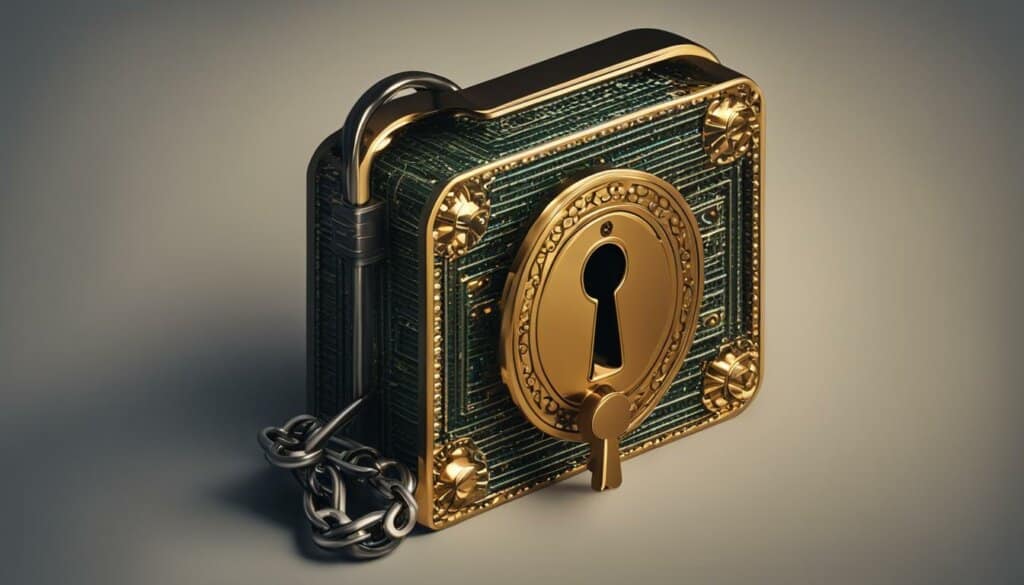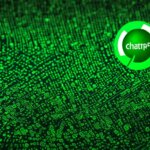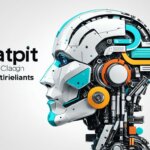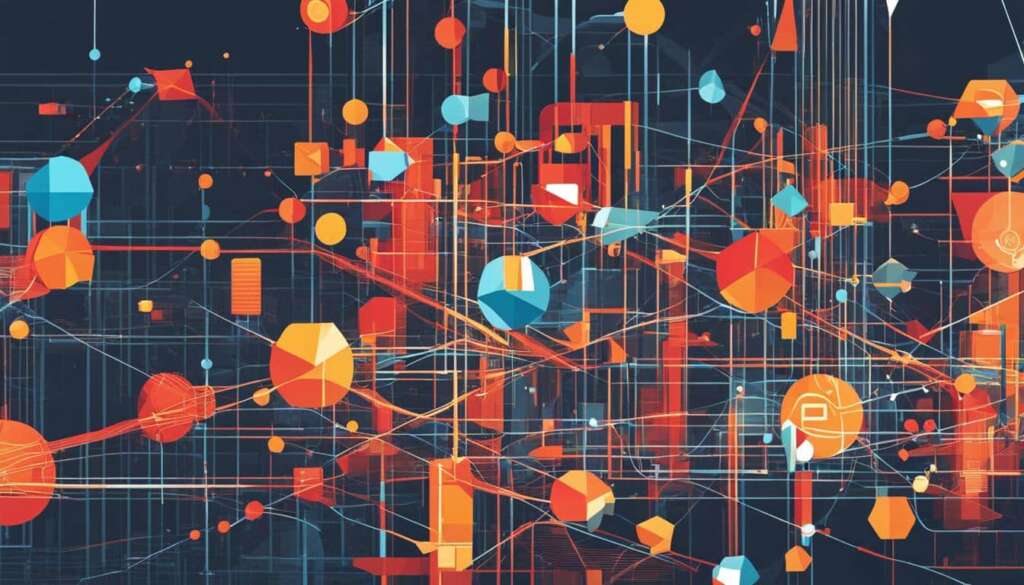Table of Contents
The ownership of content generated by ChatGPT raises complex legal questions. When it comes to wider distribution of AI-generated content, such as marketing materials or articles, the legalities become murky. The legal implications of using ChatGPT for distributed content are still being debated, and legal opinions vary on the issue.
According to legal experts, the use of AI-generated content, including ChatGPT, raises questions about intellectual property rights. The current understanding is that ownership of AI-generated content is tied to the human authorship requirement for copyright protection. However, the ownership and legal implications of AI-generated works are still a complex and evolving area of law.
It is essential for users of ChatGPT to be aware of the potential copyright and patent infringement issues and to carefully consider the lack of confidentiality. Despite these challenges, ChatGPT remains a valuable tool for creating intellectual property and inspiring innovation.
Intellectual Property Rights and ChatGPT
When it comes to AI-generated content, such as ChatGPT, the issue of intellectual property rights arises. Under current U.S. copyright law, original and creative authorship by a human is required for copyright protection. However, the ownership of AI-generated works remains uncertain and raises questions about authorship and ownership. Legal authorities have generally been skeptical of non-human entities claiming authorship or ownership of intellectual property. This uncertainty is further complicated when there are challenges relating to copyright or infringement of intellectual property.
In cases where there are copyright or IP-infringement challenges, it remains unclear who would be liable – the operator of ChatGPT or the creator(s) of the ChatGPT software. Ongoing cases are exploring the concept of authorship and ownership of AI-generated content, which will hopefully provide more clarity on the matter in the future.
The Debate Over Authorship and Ownership
The question of authorship and ownership of AI-generated content has been a subject of debate in legal circles. The courts have generally been hostile to the idea of non-humans claiming authorship or ownership. However, as AI technology advances and becomes more sophisticated, the issue becomes increasingly complex. Determining who owns the rights to AI-generated content is essential for both legal and ethical reasons.
It remains uncertain who would be liable in cases of copyright or IP infringement related to AI-generated content.
The ownership of AI-generated content becomes even more uncertain when there are challenges related to copyright or infringement of intellectual property. As the AI model, such as ChatGPT, generates content based on sources of information, it may inadvertently include copyrighted material or infringe upon existing intellectual property rights.
The Operator of ChatGPT vs. Creator(s) of ChatGPT Software
One of the key legal considerations is determining who would be liable in cases of copyright or IP infringement related to AI-generated content. Would it be the responsibility of the operator of ChatGPT or the creator(s) of the ChatGPT software? This issue is yet to be definitively resolved and may vary depending on the specific circumstances of each case.
Understanding the Implications
It is crucial for users of AI-generated content, such as ChatGPT, to understand the implications of intellectual property rights. While AI models can provide valuable insights and assistance, it is essential to ensure that proper permissions and rights are obtained for any copyrighted materials used. Additionally, the lack of clear ownership guidelines necessitates caution when using AI-generated content in commercial or distributed contexts.
As the legal landscape continues to evolve, it is important to stay informed about the rights and responsibilities associated with AI-generated content. Seeking legal advice and adhering to intellectual property laws can help navigate the complexities surrounding ownership and rights in AI-generated works.
| Challenges | Potential Solutions |
|---|---|
| Uncertain ownership of AI-generated works | Legal precedents and clarity through ongoing cases |
| Lack of established guidelines | Developing comprehensive ownership guidelines for AI-generated content |
| Copyright and infringement issues | Ensuring permissions and rights for copyrighted materials used |
| Determining liability | Evaluating the responsibility of ChatGPT operators and software creators |
Copyright Implications of ChatGPT Generated Content
The issue of content ownership is closely tied to copyright implications. ChatGPT tends not to include citations or attributions to the original sources and IP used or synthesized, leading to questions about the need for citations. While from an IP perspective, there may be no requirement for citations if the source material is not specifically quoted, citation or attribution is helpful for identifying biases and credibility.
The ownership of AI-generated works is still being debated, and current U.S. law suggests that an AI-created work is likely either a public domain work or a derivative work of the materials used to train the AI tool. The ownership of derivative works would depend on various factors, including the origin and ownership of the training dataset.
Ownership of AI-Generated Works
The ownership of AI-generated works, including content created by ChatGPT, is a complex issue. While the AI system generates the content, the question remains as to who should claim ownership of the output. Some argue that the ownership should be attributed to the user who inputs the prompts, as they exercise control over the generated output. Others believe that the developers and operators of ChatGPT should be acknowledged as the owners, as they have trained and created the AI system.
“The ownership of AI-generated content is a topic of ongoing debate and legal scrutiny. There is a lack of clarity in determining who holds the rights to content generated by AI systems like ChatGPT.”
The lack of consensus on ownership further complicates the issue. Legal frameworks are struggling to keep up with the pace of AI development, and existing copyright laws may not adequately address the unique challenges presented by AI-generated content.
Implications for Content Creators and Users
For content creators and users, the copyright implications of ChatGPT-generated content have important consequences. Content creators may find their intellectual property at risk of being reproduced or modified without proper attribution. The lack of citations or attributions in ChatGPT output makes it difficult to determine the original sources or identify potential copyright infringements.
Similarly, users of ChatGPT-generated content may unknowingly infringe upon the rights of others if they distribute or repurpose the output without obtaining the necessary permissions. It is crucial for both content creators and users to exercise caution and ensure they comply with copyright laws to avoid legal liabilities.
Ownership of AI-Generated Content by Different Stakeholders
| Stakeholder | Ownership Argument |
|---|---|
| Users of ChatGPT | Control over the prompts and inputs |
| Developers and Operators of ChatGPT | Creators of the AI system |
| Original Content Creators | IP used or synthesized by ChatGPT |
Table: Ownership of AI-Generated Content by Different Stakeholders
As the legal landscape continues to evolve, stakeholders, including AI developers, content creators, and policymakers, must work together to establish clear guidelines regarding the ownership of AI-generated content. This would provide much-needed clarity and ensure a fair and ethical approach to content creation and distribution in the age of AI.
Infringement of Intellectual Property Rights
The use of output generated by ChatGPT may potentially infringe on the intellectual property rights of others. As AI-generated content continues to evolve, copyright and patent infringement issues surrounding ChatGPT are still being determined. When it comes to copyright infringement, identifying the infringer becomes crucial. In the case of AI-generated content, determining liability can be complex, and both the user and the operator of ChatGPT could potentially be jointly liable for copyright infringement.
Patent infringement liability, on the other hand, depends on whether the AI performed an infringing process or produced an infringing article. The issue of liability related to AI-generated code is an area that is expected to receive more attention in future litigation.
“The use of AI-generated content raises important questions surrounding intellectual property rights and the potential infringement on existing works. Determining liability and infringement in AI-generated content is a complex legal terrain that requires further examination and legal precedent.”
As the field of AI-generated content matures, it is crucial for users of ChatGPT content to follow guidelines and best practices to mitigate the risk of infringing on intellectual property rights. Awareness and adherence to copyright and patent laws are essential to navigate this evolving landscape.
Potential Infringement Liability Factors
| Factor | Potential Liability |
|---|---|
| User Actions | Possible joint liability for copyright infringement |
| Operator Responsibilities | Possible joint liability for copyright infringement |
| AI Processes | Possible liability for patent infringement |
| AI-Generated Content | Possible liability for copyright infringement |
Understanding the potential pitfalls and legal implications of using AI-generated content, such as ChatGPT, is crucial to safeguard intellectual property rights. As the legal landscape continues to evolve, it is essential to stay informed about the best practices and guidelines surrounding content ownership, copyright, and patent laws.

Confidentiality Concerns with ChatGPT
When using ChatGPT, it is important to consider the implications of confidentiality. The OpenAI Terms of Use state that conversations may be reviewed by AI trainers to improve the system, and a user should not expect confidentiality. The inputted information could be used and disseminated by OpenAI, subject to applicable law.
It is recommended to avoid inputting confidential information into ChatGPT to protect sensitive data. The confidentiality concerns surrounding AI-generated content and NLP models highlight the need for careful consideration when using ChatGPT to ensure the protection of sensitive information.
While ChatGPT offers a range of benefits, such as generating creative ideas and providing valuable insights, it’s essential to prioritize the security and confidentiality of sensitive information when interacting with the model.
Using ChatGPT to Create Intellectual Property
While there are ownership and infringement issues surrounding the use of ChatGPT, the model can still be a valuable tool for creating intellectual property. ChatGPT offers several capabilities that can aid in the creative process, including:
- Generating ideas for new inventions or creative projects
- Assisting with patent infringement searches to ensure the unique nature of an idea
- Providing simple explanations of complex concepts
However, it is important for users to acknowledge that ChatGPT is not infallible. The model’s responses may not always be entirely accurate or suitable for their intended purpose. Therefore, any content generated by ChatGPT should be carefully verified and adjusted as needed to meet the required standards.
It is worth noting that using ChatGPT to draft patent claims and specifications may carry risks. Disclosing such information in a public forum, even AI-generated, could make the invention publicly available, potentially compromising the ability to file for a patent. To safeguard intellectual property, it is advisable to consult legal experts and file patent applications before utilizing ChatGPT for detailed invention descriptions.
Despite these limitations, ChatGPT can serve as a valuable source of inspiration for innovation and help enforce existing intellectual property rights. By leveraging its capabilities responsibly, users can harness the potential of ChatGPT while navigating the complexities of intellectual property law.
Example Intellectual Property Creation Process:
Consider the following example scenario:
- A researcher is exploring potential new inventions in the field of renewable energy.
- They use ChatGPT to generate a list of innovative ideas based on the latest advancements and challenges in the industry.
- The researcher conducts a thorough patent search using both traditional methods and AI-powered assistance from ChatGPT to ensure the uniqueness of their ideas.
- Based on the information gathered, the researcher refines their ideas and develops detailed patent claims and specifications.
- They consult with intellectual property lawyers to review and refine the drafted claims for accuracy and completeness.
- Finally, the researcher submits patent applications for their inventions, leveraging the insights gained from ChatGPT as a valuable resource in the creation process.
By following a structured approach and adhering to intellectual property guidelines, users can effectively utilize ChatGPT while maximizing the potential for creating valuable intellectual property.
Summary Table: Pros and Cons of Using ChatGPT for Intellectual Property Creation
| Pros | Cons |
|---|---|
| Can generate innovative ideas | Model’s responses may not always be accurate or suitable |
| Aids in patent infringement searches | Using ChatGPT to draft patent claims may risk making the invention publicly available |
| Provides simple explanations | Requires additional verification and adjustment of generated content |
| Inspires innovation | Requires consultation with legal experts to navigate intellectual property laws |
When using ChatGPT for intellectual property creation, it is crucial to strike a balance between leveraging its benefits and understanding its limitations. By doing so, individuals and businesses can navigate the complexities of generating intellectual property while adhering to existing ownership guidelines.
Conclusion
The ownership and legal implications of content generated by ChatGPT are an intricate and evolving area of law. As of now, it is understood that ownership of AI-generated content is tied to the requirement of human authorship for copyright protection. Ongoing legal cases are actively exploring the concept of ownership and rights in AI-generated works.
Users of ChatGPT must exercise caution and be mindful of potential copyright and patent infringement issues that may arise from the use of AI-generated content. Additionally, it is crucial to acknowledge the lack of confidentiality when using ChatGPT as per OpenAI’s Terms of Use. Inputted information may be reviewed and used by AI trainers subject to applicable law.
Despite these challenges, ChatGPT remains a valuable tool for creating intellectual property and inspiring innovation. It can aid in generating ideas, offering explanatory content, and assisting with patent infringement searches. However, it is important to verify and adjust any generated content as needed, as the model’s accuracy is not guaranteed.
As technology continues to evolve, it is expected that future legal precedents will provide more clarity on the ownership and legal framework surrounding AI-generated content. It is imperative for users to stay informed and up-to-date with developments in this rapidly changing realm to ensure compliance with applicable laws and regulations.
FAQ
Who owns content generated by ChatGPT?
The ownership of content generated by ChatGPT is still a subject of legal debate and uncertainty.
What are the intellectual property rights in relation to ChatGPT?
ChatGPT and other AI-generated content raise questions about intellectual property rights, which are still being explored and defined by legal experts.
What are the copyright implications of ChatGPT-generated content?
The use of ChatGPT-generated content may potentially infringe on the copyrights of others, and it is important to consider the legal implications and uncertainties surrounding the ownership of AI-generated works.
What are the concerns regarding infringement of intellectual property rights with ChatGPT?
The issue of infringement of intellectual property rights is complex and depends on various factors. Liability for copyright or patent infringement could potentially extend to both the user and the operator of ChatGPT.
What are the confidentiality concerns with ChatGPT?
Inputted information into ChatGPT is not guaranteed to be confidential, as stated in the OpenAI Terms of Use. Users should exercise caution and avoid sharing sensitive or confidential information.
How can ChatGPT be used to create intellectual property?
ChatGPT can serve as a valuable tool for generating ideas and providing assistance in patent infringement searches. However, it is important to verify and adjust any generated content, and avoid using ChatGPT to draft patent claims or specifications to protect the novelty of inventions.
What is the conclusion regarding content ownership and legal implications in ChatGPT?
The ownership and legal implications of content generated by ChatGPT are still complex and evolving. Clarity on intellectual property rights and content ownership is expected to emerge through future legal precedents and cases.













